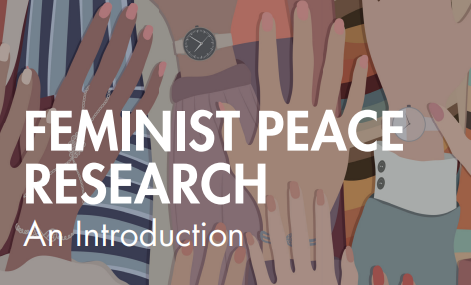This textbook provides a comprehensive overview of the field of gender, feminism and peace. It aims at meeting the needs of both students and teachers interested in peace and conflict studies, and covers the issues, topics, theories, concepts, and multiple methodologies lying at the core of feminist peace teaching and research. The textbook is based on the argument that feminist thinking is necessary to understand and analyze the core issues in peace and conflict studies, fundamental to thinking about solutions to global problems and to promoting peaceful conflict transformation.
The textbook centres alternative and critical approaches missing in mainstream peace research. It brings forward feminist perspectives on traditional peace research topics such as militarism, peacekeeping, arms trade, and the articulation of different forms of violence. It also advances critical and alternative issues and topics that traditional peace research has sidelined. These include, for example, artificial intelligence, technologies and peace; trauma and memory; human-nonhuman species relations; art, popular culture, postcolonial and decolonial feminist perspectives; the queering of war and peace; and many others. In sum, this textbook contributes to the visibility of these feminist critical approaches to peace research and makes them accessible to scholars and students interested in the subject.
More information on the textbook can be found here: Feminist Peace Research: An Introduction – 1st Edition – Élise Féron (routledge.com)


